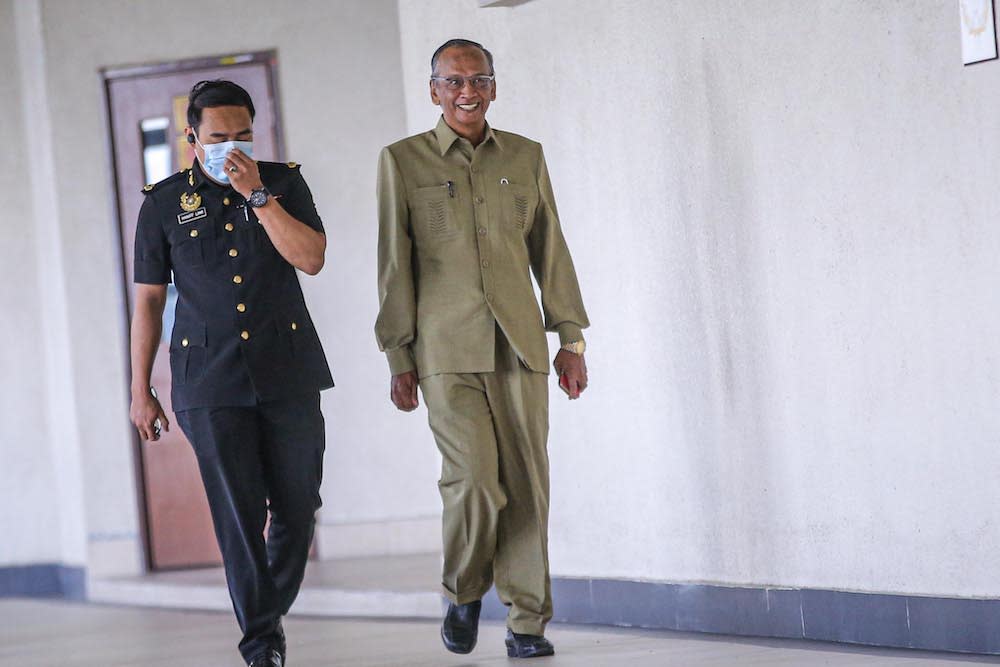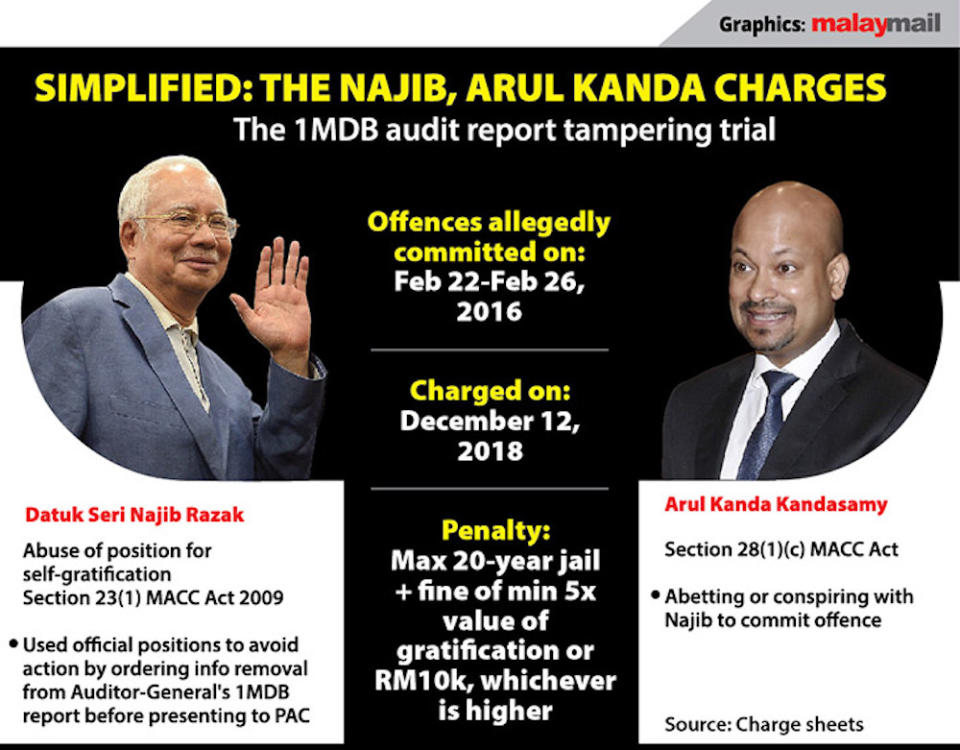In court, Ambrin insists 1MDB meeting on Feb 2016 was not an ‘exit conference’

KUALA LUMPUR, Aug 12 — The meeting at then-chief secretary Tan Sri Ali Hamsa’s office on February 24, 2016, that led to amendments to the final audit report of 1Malaysia Development Berhad (1MDB), was not an exit conference, the High Court heard today.
Former auditor-general (A-G) Tan Sri Ambrin Buang told the court that only an A-G may chair an exit conference, which he did not do at the meeting.
Ambrin also told the court that any subsequent meetings senior federal auditors had with former 1MDB chief executive Arul Kanda Kandasamy after they finalised their report were merely discussions.
Datuk Seri Najib Razak’s lawyer, Tan Sri Muhammad Shafee Abdullah, asked Ambrin whether such a meeting could be considered a “follow-up” to an exit conference, during which the subject of the audit could provide clarifications.
However, Ambrin instead reiterated that the February 2016 meeting was “abnormal” as the report was already finalised.
Shafee: How would you describe the meeting on February 24?
Ambrin: The government side wanted to see what areas we can drop [in the report]... it was a formal meeting on February 24, subsequent meetings were just a discussion between my senior team members and Arul, it is not an exit conference. This is because an exit conference can only be chaired by the auditor-general.
An exit conference is part of the typical audit process where those being audited are given the chance to provide feedback or responses to the findings by the auditors.
Before the February 24, 2016 meeting, the National Audit Department (NAD) had already conducted an exit conference with 1MDB on December 16, 2015, in line with the standard operating procedure, after completing their audit.
The February 24, 2016 meeting eventually resulted in the removal of four items in the report including 1MDB's two conflicting 2014 financial statements.
Prior to the February 24, 2016 meeting, Najib had called a meeting on February 22, 2016, with Ambrin, Ali and former principal private secretary to the prime minister Tan Sri Shukry Salleh to discuss the findings of the 1MDB final report.
In the meeting, Ambrin had recalled informing Najib of 1MDB two differing sets of financial statement for the year 2014, to which the latter promised him that “he would get to the bottom of this.”
Shafee also asked the former federal auditor whether Najib, in the earlier meeting, had stated his preference on which financial statements should be included in the 1MDB final report and whether the former prime minister had applied any pressure.
Ambrin said Najib did not.
In this trial, Najib is accused of having misused his positions as prime minister and finance minister to order changes to the 1MDB audit report to avoid civil or criminal action, while Arul Kanda is accused of helping Najib commit the alleged offence.
The trial before High Court judge Mohamed Zaini Mazlan resumes tomorrow.

Related Articles ‘No Najib cluster’: Ex-PM marks 15th day of SRC conviction with Covid-19 SOP reminder Selepas 15 hari kes mahkamah, Najib lega tiada kluster baru wujud Tidak cukup 12 tahun, pendakwa rayu Najib dipenjara lebih lama



